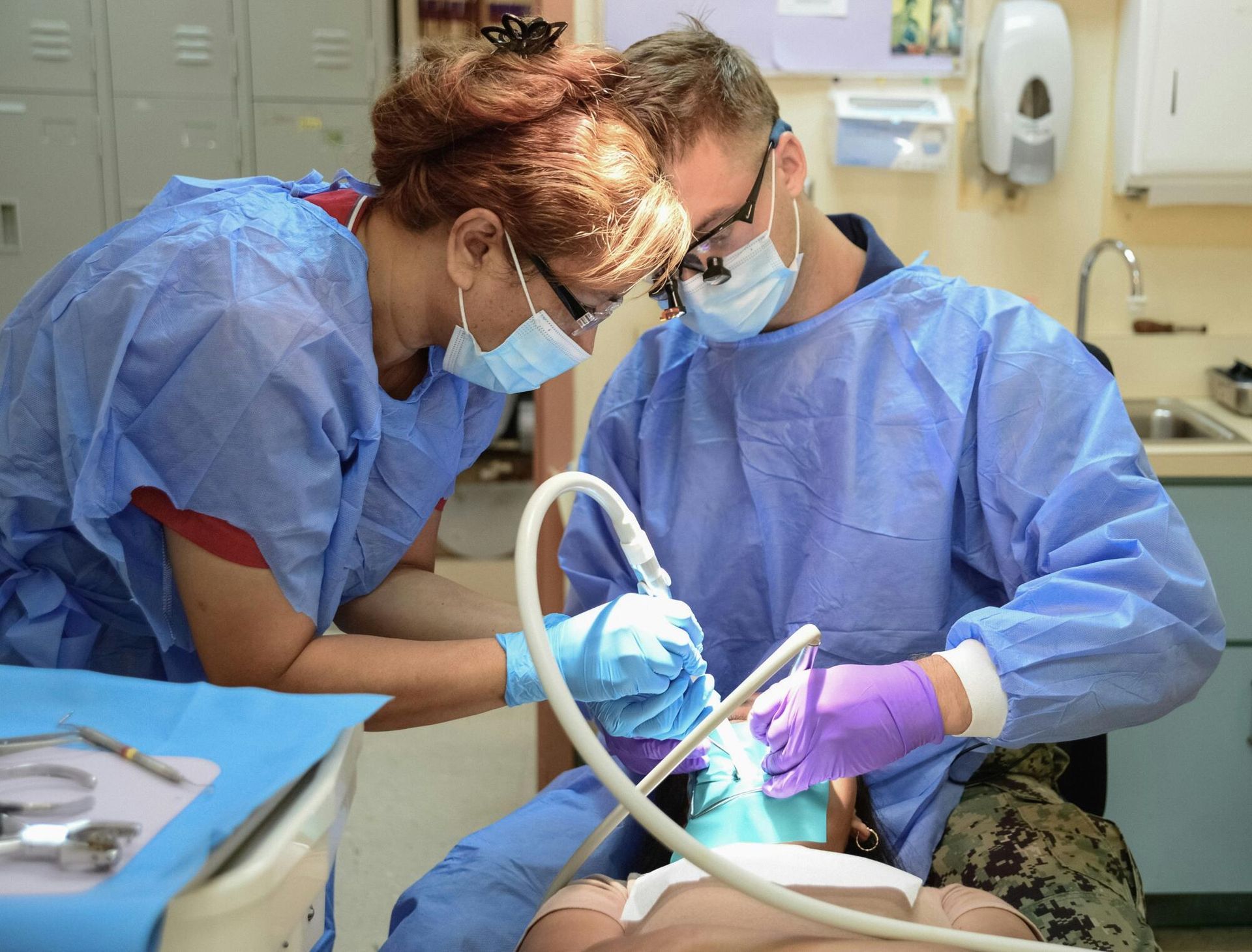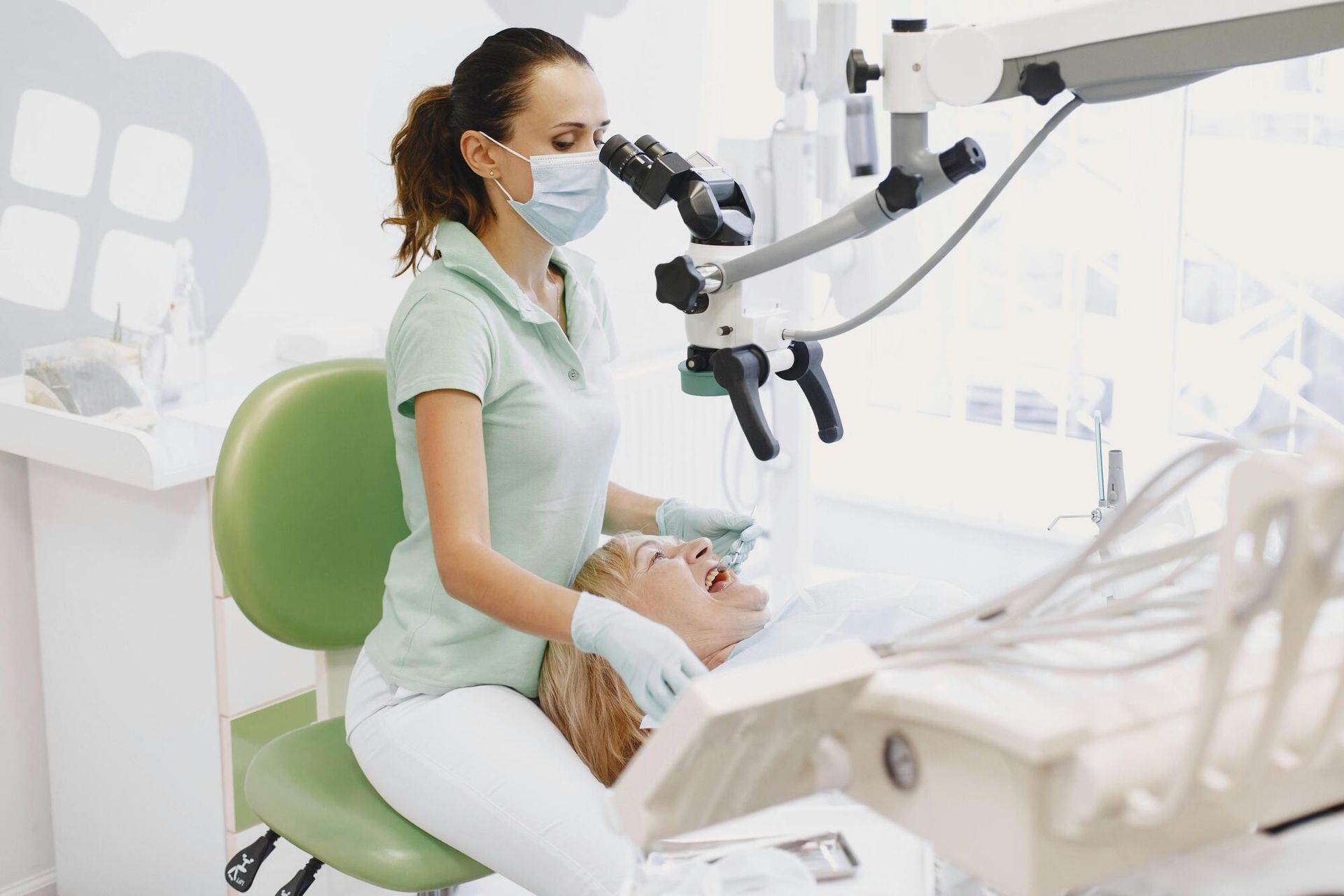Can Jaw Problems Cause Tinnitus? Exploring TMD as a Potential Trigger
Have you ever heard a high-pitched whining or ringing sound in your ears? These sounds are classic symptoms of tinnitus. If you also suffer from jaw problems, you may be wondering how jaw pain and tinnitus are related.
Luckily, we're here to help. In this article, we'll discuss the link between TMD and tinnitus. We will also cover TMD treatment methods and tinnitus relief options.
Read on to learn more about these conditions and how you can get relief quickly.
What Is Tinnitus?
Even if you've never heard of tinnitus, the condition is frustratingly common: The Cleveland Clinic reports that approximately 50 million people in the United States suffer from tinnitus.
The volume and timeframe of tinnitus can vary from person to person. One person may experience a sound equivalent to a blaring alarm clock, while another might hear a soft ringing in their ears.
It's important to note that tinnitus in itself is not a disease. Rather, it is a symptom resulting from a variety of different medical conditions.
Your ears are connected to key components of the body, such as the:
- Upper jaw
- Lower jaw
- Ear canal
- Neck
- Back of the nose
- Upper throat
- Auditory nerve
Some of the main causes of tinnitus include:
- Noise-induced hearing loss: Often the result of exposure to continuous loud noises, from construction sites to concerts, without adequate ear protection.
- Ear injuries: Trauma to the ear, such as loud noises, explosions, or gun shots at close range.
- Ear conditions: Common ear ailments include wax buildup, ear infections, and vertigo.
- Hearing loss: Especially in older folks, hearing loss can cause various symptoms, including tinnitus.
Symptoms of Tinnitus
If you suspect you may have tinnitus, here are some key symptoms to look out for:
- Whooshing sounds
- Ringing sounds
- Hearing difficulty
- Dizziness or vertigo
- Ear pain or pressure
- Popping or clicking noises
The degree of tinnitus severity can range from mildly annoying to debilitating. If you have tinnitus, especially if it's associated with conditions such as TMD, you may need to consult a professional.
What is Temporomandibular Disorder (TMD)?
According to CBS News, TMD, colloquially known as TMJ, affects tens of millions of Americans. Those with medical conditions such as arthritis and Ehlers-Danlos syndrome are more at risk for developing TMD.
Symptoms of TMJ include:
- Clicking and popping of the jaw
- Continuous jaw pain
- Stiffness in the jaw
- Difficulty opening and closing the mouth
- Facial pain
- Dizziness or vertigo
- Changes in bite function
- Teeth clenching and grinding
The severity of TMD can range from manageable to debilitating. You may feel like your condition is manageable, only to experience new symptoms that require medical and dental intervention.
The Links Between Jaw Pain and Tinnitus
As you may suspect, many links exist between jaw conditions like TMD and ear afflictions such as tinnitus. Here are just a few of the ways that these issues are intertwined:
Muscle Issues
When you have issues with your jaw bones, such as TMD, they impact every other component of the system. Lack of proper muscle functionality can have a cascading effect on your ears, contributing to the development of tinnitus.
Specifically, TMD can cause muscle spasms and overwork your jaw muscles. When these types of problems occur, they can cause issues with cochlear blood flow, as well as sound conduction.
Location
Perhaps the most obvious correlation between jaw pain and tinnitus is their proximity. The ear and jaw systems are located directly next to each other, with the ears sitting to the right and left of the jaw.
Therefore, anything that affects the jaw or TMD could have a domino effect on the ear, and vice versa.
Sensory Mechanisms
If you have symptoms such as pain or swelling in your jaw area, those effects can migrate to your ears. The pain in your jaw can also contribute to conditions like tinnitus, or worse, hearing loss.
Nerve Dysfunction
Both the jaw and the ear can have a direct impact on the nervous system. Not only are these two body parts close to the brain, but they are located in one of the most systematically complex areas of the human body.
Nerve dysfunction stemming from jaw pain or TMD can actually interrupt auditory pathways. The temporomandibular joint is directly next to the trigeminal nerve. The trigeminal nerve affects sensations in the jaw and face.
Tinnitus Relief Options and TMD Treatment Methods
If you suffer from TMD, tinnitus, or both, there are many relief options available. You do not have to be in pain or hear unpleasant noises for the rest of your life.
Read on to learn about some of the treatment methods available, ranging from techniques you can do at home to major medical procedures.
Jaw Exercises
Physical therapy can be one of the most effective treatments for TMD when practiced correctly. When you work with a qualified physical therapist, he or she can show you jaw exercises that you can do at home when you experience pain or discomfort from tinnitus and TMJ.
Stress Reduction and Relaxation Techniques
Stress is a huge cause of jaw clenching, which can exacerbate TMD symptoms. Those increased symptoms can lead to flares, which may, in turn, cause tinnitus.
If you think you cannot fit stress reduction into your day, try some simple methods first. Popular stress reduction methods include:
- Meditation first thing in the morning or before bed
- Tensing and subsequently relaxing individual muscle groups
- Listening to music
- Exercise
- Socializing with friends
- Yoga or Tai-Chi
Practice stress reduction in your everyday life. Keeping yourself calm can have other benefits, such as better sleep quality and increased cognitive function.
TENSing Treatment
Did you know that you can use electricity to treat TMD? Newer dental treatment methods, such as the TENSing technique, use small amounts of electricity to stimulate and relax muscle groups. TENSing can help to:
- Ease inflammation
- Relax muscles
- Reduce pain
Some of the benefits of TENSing treatment from a qualified practitioner include:
- Fewer tension headaches
- Less overall pain
- Determination of skull and jaw position for dentures
At Dental Care Burke, our team is highly trained in TENSing. Dr. Lynch can work with you to develop a treatment plan for your pain and discomfort that includes TENSing as a primary method.
Nightguards
The cause of your tinnitus and TMD could be hidden in plain sight. Have you been told that you grind your teeth or clench your jaw as you sleep? If so, these unconscious habits could be huge contributors to your conditions.
A custom nightguard is an easy solution to prevent the problems from worsening. Here are the steps to acquiring and using a nightguard:
- You'll attend a consultation appointment with your dentist to discuss your nightguard options.
- Your dentist can check with your dental insurance provider to see if they offer coverage for nightguards.
- Your dentist or a dental assistant will take a mold of your mouth to create a custom mouthguard.
- Your custom mouthguard will be created based on the mold.
- Your dentist will provide you with the nightguard and discuss how to use it for optimal results.
- You'll wear your nightguard when you go to bed every night to reduce your TMD and tinnitus symptoms.
Remember, nightguards are an investment, so it is important to take care of your nightguard once you receive it. Ask your dentist about tips and tricks for increasing the longevity and usability of your nightguard.
Surgery
Surgery is an option for treating TMD that leads to tinnitus, but it is an extreme measure. Before you resort to surgical intervention, make sure you exhaust all of your other options first.
Surgical procedures for TMD range from minimally invasive with little recovery time to major operations that require an extensive recovery period. Here are some of the most common surgical treatments for TMD:
- Arthroscopy: A laparoscopic method that is best for treating minor problems, such as scar tissue or torn cartilage.
- Arthrocentesis: The practitioner will inject liquid into the joint to move a disc or flush out accumulated debris.
- Arthroplasty: Also known as open jaw surgery, this procedure involves cutting open the jaw to replace or repair components of the joint.
The recovery time can vary, but it's important to avoid excessive jaw movement and steer clear of hard foods after any jaw procedure. You may also need over-the-counter pain management or stronger options, depending on which procedure you underwent.
Can Jaw Problems Cause Tinnitus?
So, can conditions such as TMD be a contributing factor in the development of tinnitus? The answer is, sometimes. If you're concerned about jaw pain and tinnitus, it is best to consult a professional.
If you suffer from tinnitus stemming from jaw problems, we are here to help. At Dental Care Burke, we provide premier dentistry services in the Burke, VA area. Led by Dr. Bernard W. Lynch, we focus on keeping our patients' oral health in the best possible condition by emphasising preventive methods and providing a comfortable environment.
Are you looking for a professional team that offers dental care solutions? Reach out to us today to schedule your appointment. We can't wait to hear from you!












